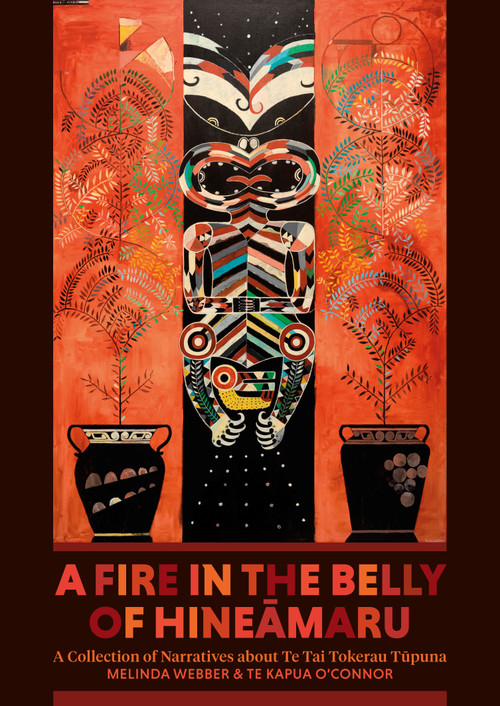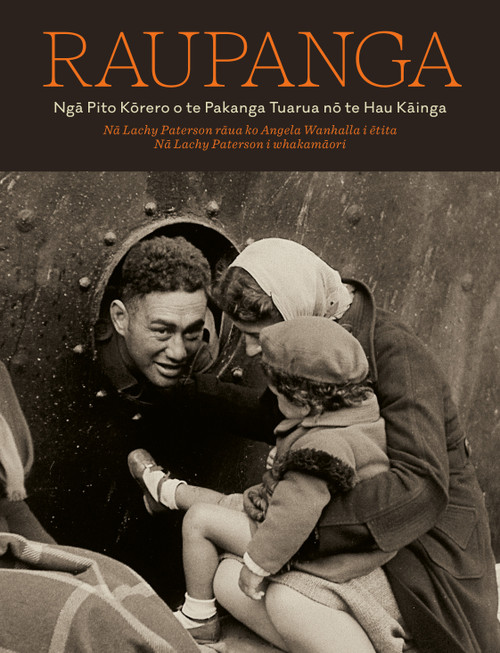
Te Hau Kāinga: The Māori Home Front during the Second World War
Angela Wanhalla, Sarah Christie, Lachy Paterson, Ross Webb and Erica Newman
The illustrated account of how Māori society was transformed at home while the Māori Battalion were fighting overseas.
Taking readers to the farms and factories, the marae and churches where Māori lived, worked and raised their families, Te Hau Kāinga tells the story of the profound transformation in Māori life during the Second World War.
While the Māori Battalion fought overseas, the Māori War Effort Organisation and its tribal committees engaged Māori men and women throughout Aotearoa in the home guard, the women’s auxiliary forces, and national agricultural and industrial production. Māori mobilisation was an exercise of rangatiratanga and it changed how Māori engaged with the state. And, as Māori men and women took up new roles, the war was to become a watershed event for Māori society that set the stage for post-war urbanisation.
From ammunition factories to kūmara fields, from Te Puea Hērangi to Te Paipera Tapu, Te Hau Kāinga provides the first substantial account of how hapori Māori were shaped by the wartime experience at home. It is a story of sacrifice and remarkable resilience among whānau, hapū and iwi Māori.
________
Published as a companion to:
Raupanga: Ngā Pito Kōrero o te Pakanga Tuarua nō te Hau Kāinga
Nā Lachy Paterson rāua ko Angela Wanhalla i ētita. Nā Lachy Paterson i whakamāori.
________
Endorsements
‘The war caused revolutionary changes at all levels: it proved to be a stimulus for the Māori leadership at home as well as laying the basis for new developments in the following years. This book provides a lens for understanding the years both before and after the war.’ — Dame Claudia Orange
‘The depth and detail presented here affords a greater understanding of the critical roles and significant contributions of Māori that previously have not been explained and accounted for, or have not been recorded in such detail. There is a great need to supply information on the Second World War from a Māori perspective, and this fills a void that has been wanting and waiting for rich and detailed contributions.’ — Professor Tangiwai Rewi, Dean of Māori and Indigenous Studies, Te Whare Wānanga o Waikato – University of Waikato
‘Sir Apirana Ngata spoke of Māori contribution to the war effort as the price of citizenship; it is a price which should not have had to be paid, and this book reminds us what a huge opportunity for Māori self-determination was destroyed by the power structure at war’s end.’ — Jim McAloon, Professor of History, Te Herenga Waka Victoria University of Wellington
‘This is not simply a story of Māori during the war. Two themes stood out for me: first, the enormous cost carried by Māori during the war and its impact on communities, whenua and moana. Second, Māori sacrifice – both in terms of human life and hardship – are alongside stories of creative survival in the face of the long-term effects of colonisation. Te Hau Kāinga will attract a general readership, both Pākehā and Māori, while contributing to scholarly arguments around indigenous responses to global war.’ — Rowan Light, Waipapa Taumata Rau University of Auckland
Media
-
Listen to Lachy Paterson and Angela Wanhalla in conversation with Mihingarangi Forbes on RNZ’s Saturday Morning
-
‘War was the price of citizenship.’ – Listen to Angela Wanhalla interviewed on Rural Exchange
- ‘not only does Te Hau Kāinga normalise the inclusion in history of all members of New Zealand society, but in describing that society it gives expression to a completely different worldview.’ – Helen Watson White, Landfall Review Online
-
‘Te Hau Kāinga is a fascinating study and an accomplished book which contributes to our understanding of a complex piece of history and the people within it.’ – Steven Loveridge for the Journal of Australian, Canadian and Aotearoa New Zealand Studies
- ‘Considering the enormity of the home front and the many historical factors competing for the attention of scholars and readers alike, crafting a concise history is fraught with challenges. Te Hau Kāinga provides an exceptionally accessible yet scholastically thorough examination of the Māori contribution to the home front . . .’ – Noah Szajowitz for the Journal of New Zealand Studies
Authors
Sarah Christie was a postdoctoral fellow in the History Programme at Ōtākou Whakaihu Waka, where she completed her doctorate on the social and cultural histories of women in the workforce in New Zealand. She is currently a researcher at the Ngāi Tahu Archive, Christchurch.
Erica Newman (Ngāpuhi) is a senior lecturer at Te Tumu: School of Māori, Pacific and Indigenous Studies at Ōtākou Whakaihu Waka. She researches adoption, whāngai, kinship and identity (internationally and nationally) with a focus on Indigenous perspectives, and has published on transracial adoption in New Zealand. Erica was awarded a Marsden Fund Fast-Start grant to explore the intergenerational impact of the 1955 Adoption Act and to journey with descendants of Māori adoptees who are searching for their tūrangawaewae.
Lachy Paterson is emeritus professor at Te Tumu, Ōtākou Whakaihu Waka, where he taught te reo Māori and Māori history. He researches Māori history, especially relating to newspapers and other texts in Māori, and the relationship between Māori and the government in the nineteenth and first half of the twentieth century.
Angela Wanhalla (Ngāi Tahu, Ngāi Te Ruahikihiki, Pākehā) is a professor in the History Programme, Ōtākou Whakaihu Waka. Her primary research area is Māori women’s history. Her most recent book is Of Love and War: Pacific Brides of World War II (University of Nebraska Press, 2023).
Ross Webb has a PhD from Victoria University of Wellington and is a historian with an interest in organised labour and oral history. He is principal researcher analyst in the Research Team at the Waitangi Tribunal Unit, and is working on a book, ‘In Defence of Living Standards: The Federation of Labour, Politics, and Economic Crisis, 1975–1987’.




